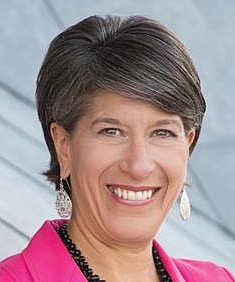It's the beginning of a new year, and lots of people are looking to do some cleaning out. Whether it's a detox body cleanse or binge-watching "Tidying Up With Marie Kondo" on Netflix, people are interested in freeing themselves from toxins in their body and letting go of material things that seem to hold them back from living their best life.
Another type of cleanse could also be helpful. Start by asking yourself, "What did I drag into this new year that is holding me back?" It could be bitterness and resentment, a toxic friendship, lies you have taken on as truth about yourself or childhood experiences that still haunt you. Maybe it is a lack of forgiveness of yourself and/or others, disappointment that weighs heavily on your heart, despair that things will never change, an addiction, a job you dislike, and the list could go on.
Perhaps all of us could benefit from a relational detox. A lot of the buzz about Marie Kondo has to do with appreciation. Concerning clothing, trinkets, books and other belongings, she asks, "Do these things spark joy? When you pick up an article of clothing, look at it and feel it. Do you love it, or is it just another piece of clothing?" She says if it doesn't bring you joy, get rid of it; file it away or gift it to someone.
That could be a great place to start when thinking about a relational cleanse. When you think about your friendships, are there people who suck the life right out of you every time you are around them? If so, why do you choose to hang with them? How would your life be different if you moved on?
If a self-examination leads you to realize there is a lot of unforgiveness, resentment and bitterness stored up in your heart and head, the next question is: What purpose does this serve? It is easy to tell ourselves that holding on to emotions is powerful in some way, that it is actually impacting the other person, but it's really killing you instead. Letting go of the poison doesn't excuse the behavior. It gives you the freedom to live.
What about disappointment? Life is complicated for sure. Spouses walk away, jobs end, dreams sometimes get trounced on by unexpected illness, children make poor choices and sometimes the biggest disappointments come from the ones you care about the most. At some point you have to ask yourself how collecting and carrying around disappointments is helping you move forward. Disappointment can serve a purpose, though. Sometimes you look back and realize that one of your biggest disappointments taught you one of your greatest life lessons. But if you can't figure out how holding on to disappointments is helping you be your best you, then it's time to let them go. Doing this might feel like letting go of a very heavy weight.
Excessive spending, gambling, alcohol, drugs, food, sex, pornography, video gaming, exercising, work and cutting are just a few of the addictions people often find themselves battling. Acknowledging that any one of these has a stranglehold on your life is the first step toward dealing with it and moving forward. These addictions are often bigger than what we can handle on our own, so don't be afraid to seek professional help to get you moving in a healthy direction.
At the end of the day, probably the hardest part is recognizing that we each make a choice, consciously or not, to continue hauling stuff around that isn't helpful or healthy for us. Making an intentional decision to stop dragging around unhealthy relational things can give you a completely different perspective on this new year and your life. Opportunity lies ahead.
Julie Baumgardner is president and CEO of family advocacy nonprofit First Things First. Email her at julieb@firstthings.org.
